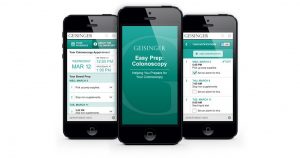 Increasingly, hospital and health systems have moved from paper charts to electronic health records (EHRs). EHRs offer ways to streamline clinical workflows, reduce medical errors and increase patient safety, and provide stronger support for clinical decision-making. However, linking such records from different locations for the same patient has proved problematic in many cases, leading to frustration for physicians and often incomplete or inaccurate patient records.
Increasingly, hospital and health systems have moved from paper charts to electronic health records (EHRs). EHRs offer ways to streamline clinical workflows, reduce medical errors and increase patient safety, and provide stronger support for clinical decision-making. However, linking such records from different locations for the same patient has proved problematic in many cases, leading to frustration for physicians and often incomplete or inaccurate patient records.
Recently, however, companies and health systems have teamed up to resolve this problem, developing applications that address specific patient and physician needs while employing open standards-based IT platforms. This makes integrating data from disparate EHRs and use on different IT platforms systems easier than ever before.
One of the leaders in this trend has been innovative Pennsylvania-based health services, research, and teaching organization Geisinger. They have teamed up with several pharmaceutical companies to develop applications to aid their 1.5 million+ patients and physicians — and ultimately, patients and physicians across the United States. Most recently, Merck & Co. and Geisinger announced that their six-year partnership has generated two EHR-friendly programs, which the companies are now seeking to roll out commercially to a broad market.
The first application, called MedTrue, aims to address the problem that currently 70% of patient medication lists are inaccurate, leading to medical errors. MedTrue integrates data on patients’ medications from different sources to assist with medication reconciliation and adherence, resulting in a patient- and healthcare team-verified list of drugs. Such data includes records on prescription refills, in an attempt to improve drug adherence, reduce errors, and help patients and health care providers better connect on their care.
The second application, called Family Caregiver, provides two-way communication and coordination of care for patients and caregivers. Pilot-tested with Geisinger’s oncology patients, whose treatment plans are among the most complex, the application includes a shared calendar to help medical staff work around a patient’s personal scheduling needs to set up procedures and medication doses. The application enables patients to express their preferences and values relating to their care as their treatment progresses. It also provides information and contact details on health care team members. Patients and caregivers have access to Family Caregiver at home, through a web portal. Merck and Geisinger are conducting real world outcomes studies on the application, with results expected in Q2 2019.
Geisinger is also collaborating with AstraZeneca on EHR-integrated products to help asthma patients and providers manage care between in-office visits. Included is a mobile app that provides asthma-related weather forecasts and medication reminders and allows patients to log their symptoms and triggers of asthma attacks. Furthermore, the health organization is working with Purdue Pharma to develop apps that enable patients with chronic pain to send information on self-reported pain levels, medication use, and other relevant information to their physicians through an iPhone or Apple Watch. The apps also record real-time data such as physical activity and heart rate and deliver it to the patient’s EHR, allowing care providers to modify the patient’s pain prescription as needed. The Apple Watches will both integrate with the patients’ Geisinger EHRs and will suggest alternative pain treatment strategies such as stretching, mindfulness, and heat/cold therapy.